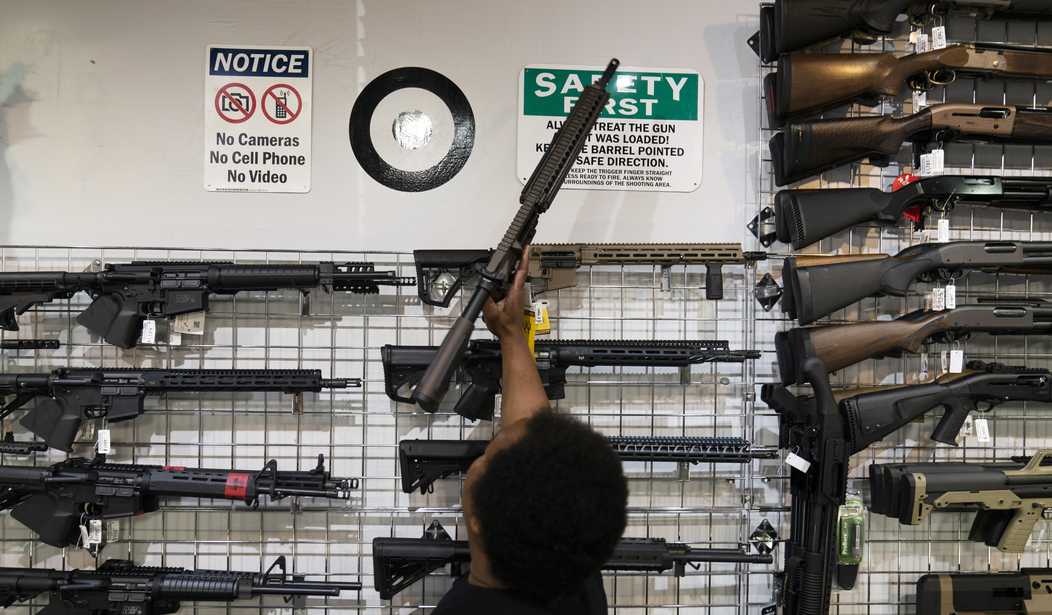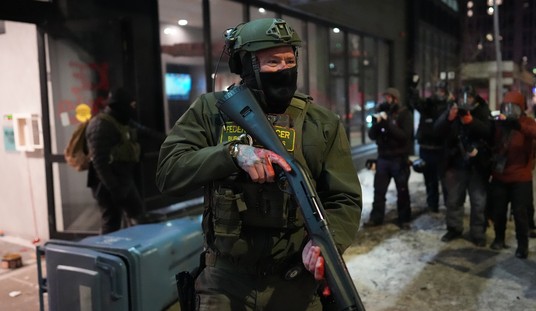I wrote earlier today about how the would-be assassin in the latest attempt on Trump's life had a rifle with the serial number scratched out. This is something that is extremely common among criminals. It has been for years.
However, it also ties into the debate around so-called ghost guns, which don't have serial numbers, as well as a court case that will soon be before the Supreme Court involving serial numbers.
It seems some believe that the ATF will use the incident to try and justify the law in question.
In a recent news story, a second attempt was made on former President Trump’s life, [they so..want him dead] and it’s making headlines for more than just the attempted assassination.
The rifle used in the alleged crime had a partially or fully obliterated serial number. While the media is buzzing about how this affects law enforcement’s ability to trace the gun, Mark Smith from Four Boxes Diner connects a crucial dot that no one else seems to be talking about: how this event might be used by the ATF to push for more gun control.
The Bigger Picture: Serial Numbers & the Vanderstok Case
Mark Smith points out that this situation is likely to impact the Supreme Court case Garland v. Vanderstok, set for oral argument on October 8th, 2024. In this case, the ATF argues for more stringent regulations requiring serialization of more firearm parts.
Their faulty reasoning? It’s supposedly for public safety and solving crimes. But Smith calls this out as nonsense, saying the real reason is to build a national gun registry—an effort that’s been in the works for years.
Smith explains that tracing guns through serial numbers isn’t nearly as effective in solving crimes as the government claims. In fact, most criminals either obliterate the serial numbers themselves or buy guns with already scratched-off numbers. So, how is more serialization going to stop criminals? It won’t. Instead, it just forces more law-abiding gun owners to jump through hoops, filling out paperwork that doesn’t actually prevent crime.
I'd add that even when they don't, tracing doesn't really help because bad guys aren't going into gun stores to purchase guns. They're buying them largely on the black market or stealing them from lawful gun owners. At best, tracing finds the original owner. It doesn't lead them to the criminals.
The fact that the would-be assassin, a convicted felon who had been previously charged with possession of an illegal machine gun, had a rifle with the serial number removed sort of supports that fact.
And yes, he was caught despite the lack of a serial number. Like in many other crimes, police didn't need to trace the gun to catch him. Most criminals in this country are caught without gun trace data.
But if one wanted a national gun registry, serial numbers are absolutely vital, as is the practice of outlawing the removal of those serial numbers.
Now, I'm not willing to say that's why the law exists. I actually like serial numbers on my guns because it means there's a chance I can get them back if they're stolen, much like the serial numbers on other products I own, but I also recognize that's not why they're on guns and that makes me uncomfortable.
Yet the ATF has made a lot of moves that, in and of themselves look innocent enough, such as digitizing their record storage or trying to keep a law that helps with gun tracing on the books, that when viewed together do, in fact, look like necessary steps in creating a gun registry.
It's against the law for them to do so, of course, but laws change. We know that anti-gun forces would love a national gun registry. If they get enough control in Congress, that's gone and they may even direct the ATF to do just that.
So yeah, I can see it.
This is the last thing we need right now, too.








Join the conversation as a VIP Member